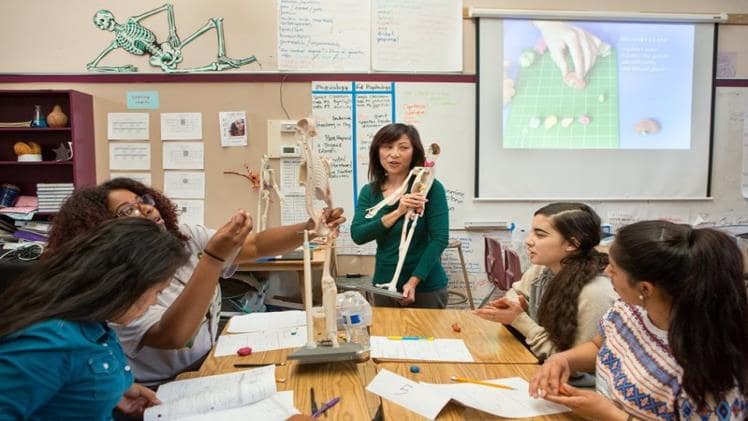You may have heard many people talking about STEM education and its importance, and you wonder what STEM education is. STEM stands for Science, Technology, Engineering and Mathematics. Now, you would think that’s it, what’s new in this? When all these subjects are already taught to the students. Well, STEM education is different from traditional teaching techniques. And to know so, keep reading to know.
Biology Past Papers and Answer is an online database of Biology past papers and answers. Students can download free samples of Biology past papers and answer sheets from our website.
STEM Education is the new approach to teaching and learning in which the central subjects, that are Science, Technology, Engineering and Mathematics are taught, cohesively. To put it in simple words, STEM education is a teaching and learning method in which all four subjects are taught in a cross-disciplinary way. Instead of building a concrete wall (like in the traditional approach) between the subjects, STEM education integrates the principles and philosophy of these subjects to teach students.
Not only this, in STEM education, students are taught to learn through practical experiences, and emphasis is put on developing real-life skills in students. As today everything is functioning with technology, whether it is to teach online using LMS or to talk online, technology is everywhere. And it is making everything automated, which makes it necessary for the students to develop such critical-thinking skills, decision-making skills, problem solving and creativity so that they can survive and get employed in the technology-driven world of tomorrow.
STEM Education provides several benefits for the students.
Benefits Of STEM Education
Enhances Creativity: STEM subjects are full of various interdisciplinary topics and problems which may require unconventional solutions. This pushes students to expand their thinking capacities and find solutions that are out of the box and different from normal bookish ones. Making them creative thinkers.
Real-Life Knowledge: All the four subjects of STEM are practically based, they ask questions which need real solutions that are possible to be implemented in real- life. This provides students with all the practical knowledge and skills which they may require shortly. Gaining practical knowledge makes it possible for students to be job ready.
Enhances Critical Thinking: The subjects taught, the instructional methods used and the study material provided to the students of STEM learning are different from those of regular learning. The students who learn STEM subjects do not do rote learning, they are given problems which they have to comprehend, analyse, evaluate and apply their learned skills and knowledge to solve. All these procedures require critical thinking from students which enhances their mental abilities and critical thinking.
Adaptation To Change: STEM education is being provided to students from today so that they are ready tomorrow. STEM education includes various principles of different subjects which are taught to them cohesively, and they need to adapt to this change frequently. This makes it possible for students to mold themselves according to changing scenarios and perform their best in them.
Teaches Teamwork: STEM subjects are complex to comprehend in one or two trials and require help, which students can get from their classmates. The experiments done and solutions expected for the complex problems of STEM concepts require all the students to think and view the problem from numerous perspectives. Then only any solution can be found in STEM learning. This makes students work in teams and teaches them the importance of teamwork and also improves their communication and social skills.
Problem-Solvers: As mentioned in the above points, students have to solve various problems in STEM education which require their critical thinking skills, creativity and innovation. All this makes them “pro” problem solvers and teaches them how to solve not only problems of science, technology and maths. But, also develops their ability to solve any problem or situation presented in front of them.
Use Of Technology: Technology is one of the core subjects of STEM, this makes it possible for students to learn more about technology and its innovations. They learn how to acclimate and utilize it for the better. For example, nowadays school management software is used for learning rather than traditional classroom learning.
Better Career Opportunities: STEM education creates students who are future-ready with skills like technical knowledge, problem-solving, critical thinking and creative skills. This will open up greater lucrative career opportunities for the students in future.

